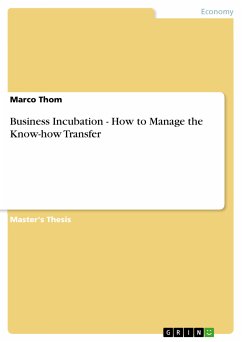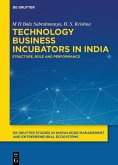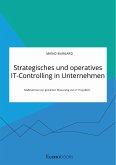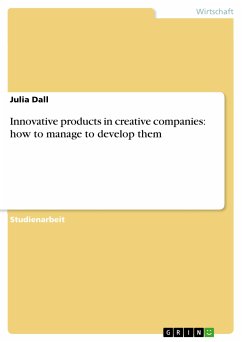Master's Thesis from the year 2011 in the subject Business economics - Business Management, Corporate Governance, grade: 1,0, Anglia Ruskin University (Lord Ashcroft Business Faculty), course: Entrepreneurship / Business Incubation, language: English, abstract: Entrepreneurial know-how is a critical issue for the success of an innovative business formation. It is the business incubator’s mission to transfer the required know-how to the entrepreneur. This inductive study explores the practiced know-how transfer processes. The research methods are various and used in a mixed combination, by analysing secondary data of best practices, by the use of interviews with experts, and by a questionnaire survey with business incubators. The results show that the know-how transfer is mostly done in a long lasting resource consuming process due to the belief that the entrepreneur must be capable of facing all entrepreneurial challenges in a way that shows a high level of quality. The entrepreneur must have special abilities and skills in various fields. Besides profound technical and business managerial know-how, the entrepreneur must have many personal qualifications for the entrepreneurship as well as the ability to recognise opportunities and to make decisions. Based on these findings the dissertation presents a conceptual framework of an efficient know-how management – the Next Practice Approach (NPA). The NPA designs the know-how transfer process with a clearly lower consumption of resources on the incubators’ and entrepreneurs’ side. The entrepreneur must acquire considerably less know-how and executes the business formation even faster and with a higher quality compared with the currently practiced processes.









